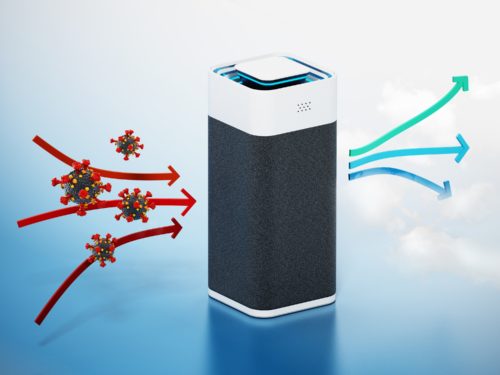
There are countless products purported to help you improve your home’s comfort and safety. Of these, there are a host of recommendations about air purifiers and dehumidifiers. Take a few minutes to learn what each does, how they work, and how to determine what is better for your household.
What Air Purifiers Do
As their name states, these devices work to purify the air and remove contaminants that may be harmful. Your air has a host of contaminants floating through it, and this significantly affects what you breathe indoors. Some common contaminants include:
- Dust and dust mites
- Pet dander
- Formaldehyde
- Pollen and other allergens
- Volatile organic compounds (VOCs)
The method of purification depends on the particular device. There are mechanical purifiers, activated carbon, ionizers, and ultraviolet light (UV) purifiers. Let us dig into how each type functions and learn what they do.
Different Types of Air Purifiers
Mechanical purifiers are systems we commonly think of as filters. Your HVAC system already has a filter built in, but a purifier typically has a much more substantial filter. These will commonly include a HEPA filter, which will remove particles down to 0.3 microns, or smaller than common viruses.
Activated charcoal purifiers are another form of filter, but they use carbon instead of paper or fiberglass for the filtering material. Carbon is an incredibly absorbent substance, so any purifiers designed to remove odors will normally have activated carbon.
Ionizers work to purify the air throughout your house by adding negatively charged ions to the air circulation. These ions attract and hold together particles in the air until they become heavy enough to fall as dust.
UV light purifiers use UV-C light to render many particles inert. This works at the cellular level, disrupting the cell’s ability to replicate. While UV purifiers do not pull particles from the air, they are very useful at making those particles less bothersome.
What Dehumidifiers Do
Dehumidifiers function on an utterly different level than air purifiers do. Rather than pulling the particles from the air directly, they manage the amount of moisture in the air. Moisture is a key component for indirectly reducing airborne contaminants, with the ideal humidity being between 30% and 50%.
Humidity lower than 30% creates a dry environment in which skin, furniture, and carpeting dry out. As everything dries out, it releases more particles into the air. When dust is particularly dry, it stays airborne longer, reducing your home’s indoor air quality, or IAQ.
Having moisture too high is also problematic. Many biological contaminants thrive in warm, moist environments, so they will grow anywhere that holds moisture in your home. Not only that, but the high humidity can cause condensation on your windows, which may lead to damage of water-sensitive surfaces, such as wooden windowsills.
Dehumidifiers work to keep humidity in check, which is especially important over the warmer summer months. Even though the winter tends to be drier already, there may be areas of your house that would benefit from year-round dehumidification, such as your bathroom or kitchen.
Types of Dehumidifying Technologies
There are currently three different technologies widely available for dehumidifiers, including compressor, Peltier, and desiccant models. The type of technology a device uses will determine how much moisture it removes from the air and how much energy it will consume.
Both compressor and Peltier technologies use cold surfaces to cause moisture to condense out of the air. Compressor models operate much like an air conditioner, using refrigerant to create the cold surface on the coils inside the unit. Peltier models use an electric current to create the cold surface. Compressor models have the highest dehumidifying potential, but they also consume the most energy.
Desiccant dehumidifiers rely on an absorbent material, known as the desiccant, to absorb moisture moving through the machine. These units have a small electric heater to push warm air through the desiccant wheel to dry it out so that it can continue working.
Is an Air Purifier or Dehumidifier Better for My Home?
Deciding whether you want a dehumidifier or air purifier will depend on your home’s environment. If your house is naturally very humid, you will likely want a dehumidifier before looking at purifiers.
However, if the humidity is generally controlled well, you may think about moving straight to an appropriate air purifier. An IAQ professional will be able to help you evaluate your property and determine the best solution for your situation.
Residents of Festus wanting the most reliable home comfort have turned to Bone Heating & Cooling since 1978. Our team provides personalized indoor air quality solutions in addition to furnace and air conditioning maintenance, repair, and installation. Call today to schedule your consultation with one of our indoor air quality experts.

